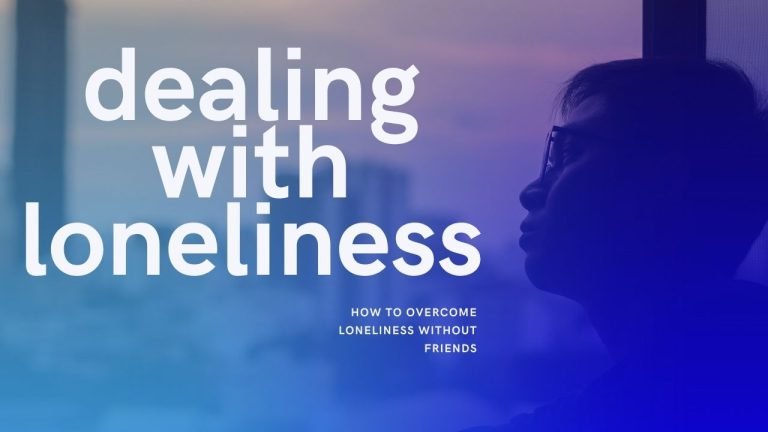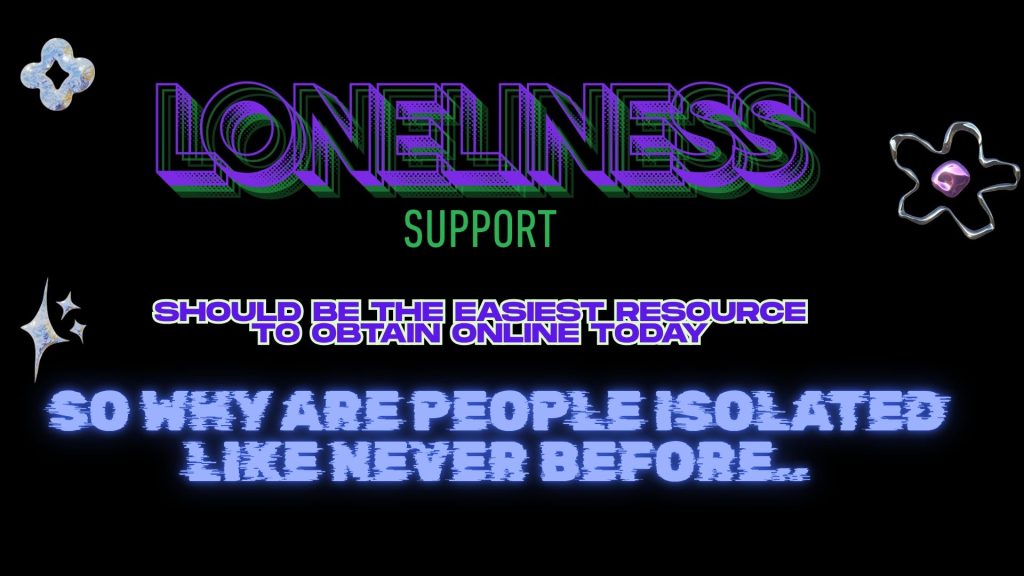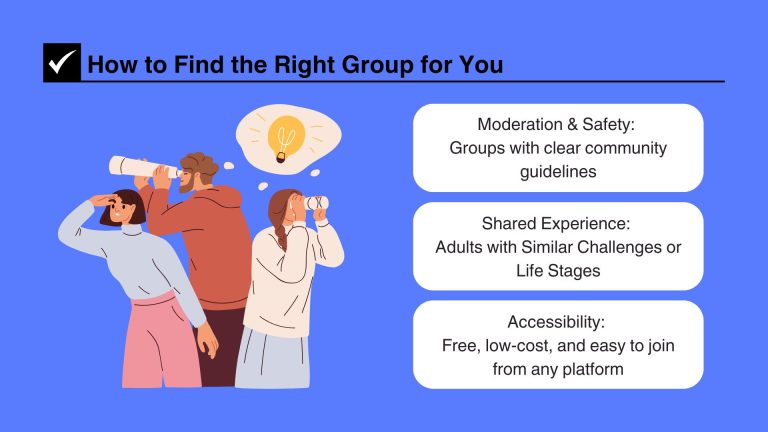

If you’ve been feeling isolated or wondering where to turn, online support groups for loneliness offer a lifeline of understanding and community. These virtual spaces bring together people who share one powerful goal — to feel seen, heard, and connected again.
Whether you’re searching for groups for lonely adults, a loneliness helpline, or a private lonely support group, this guide explains how to find the right space for your emotional needs — and why connection, even online, can make all the difference.
Loneliness is not just an emotion — it’s a health concern that affects millions. Studies show that chronic loneliness can raise stress levels, weaken immunity, and even increase the risk of depression.
Joining support groups for lonely people helps reduce that emotional burden by giving you a safe place to talk and share your thoughts with others who truly understand.
In online lonely groups, there’s no judgment or pressure — just conversation, empathy, and hope.
There are multiple types of online loneliness support resources. However, you should carefully vet any of the platforms you use, ensuring they provide the support you need rather than waste your time.
In today’s rapidly advancing AI world, there are a ton of chatbots for loneliness support. However, these can lack the human connection, depriving you of the true engagement you need to beat loneliness and depression.
There are message boards to engage with strangers. These can often be poorly moderated, leading to hate-speech, bullying, and other cruel behavior.
Online therapists and counselors have increased substantially since the pandemic. While some of these platforms have good reviews, there are others who charge hidden fees, or incredibly high monthly subscription rates.
Dedicated forums and video meetings where members share stories, coping techniques, and encouragement.
Many of these communities are moderated to ensure safety and respect.
Examples:
EndSocialIsolation.org – Provides group programs and educational resources.
CampaignToEndLoneliness.org – Offers community-driven initiatives to help reduce isolation.
Sometimes adults experience a unique form of loneliness — after major life changes, divorce, or relocation. These online groups offer relatable conversations that help rebuild confidence and self-worth.
Pro Tip: Search for groups like "lonely adults near me" on platforms like MeetUp or Reddit to find genuine connection spaces.
Try It!
If you need immediate human connection, a loneliness helpline can be your first step toward relief.
These services connect you to trained volunteers or counselors who listen — anytime, anywhere.
Popular options include:
988 Suicide & Crisis Lifeline — for anyone struggling emotionally or mentally.
The Samaritans (1-877-870-4673) — 24/7 emotional support without judgment.

When choosing online support groups for loneliness, look for:
Moderation & Safety: Groups with clear community guidelines.
Shared Experience: Adults with similar challenges or life stages.
Accessibility: Free or low-cost, and easy to join from any device.
Start small — you don’t have to share right away. Just being part of a group can make you feel connected again.

Online groups are great — but sometimes you just need one person who will truly listen.
That’s where Someone Listens comes in.
If you’ve been searching for support groups for lonely people but crave more privacy, you can:
Book a $5 introductory call to speak one-on-one.
Schedule regular support sessions for ongoing comfort.
Share openly, without fear or obligation.
You don’t need to be part of a crowd to feel heard — sometimes one conversation changes everything.
Whether you join online support groups for loneliness, call a loneliness helpline, or talk privately with someone who listens — reaching out is the first step toward healing.
Loneliness loses its power when you share it.
You deserve connection, compassion, and to be heard.
